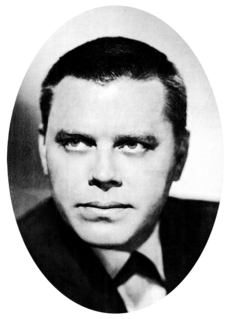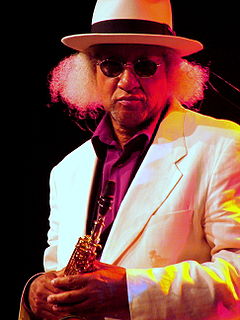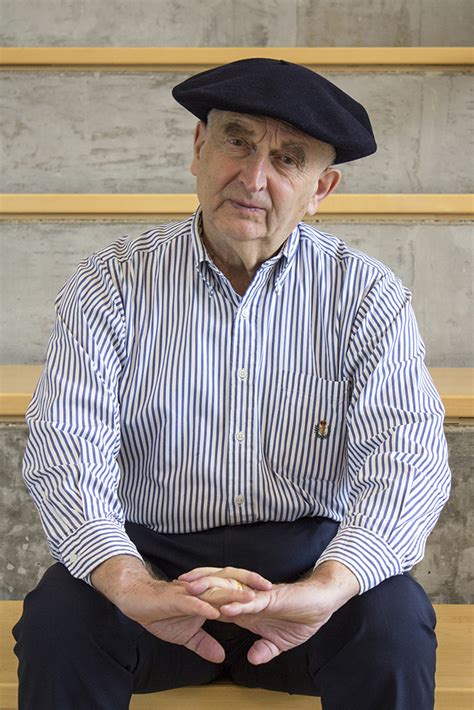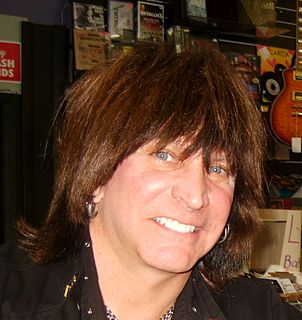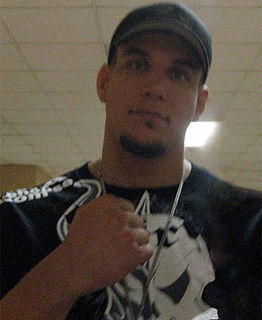A Quote by Seymour Papert
We should think about what we mean by literacy. If you say, "He's a very literate person," what you really mean is that he knows a lot, thinks a lot, has a certain frame of mind that comes through reading and knowing about various subjects.The major route open to literacy has been through reading and writing text. But we're seeing new media offer richer ways to explore knowledge and communicate, through sound and pictures.
Quote Topics
About
Been
Certain
Communicate
Explore
Frame
Frame Of Mind
Knowing
Knowledge
Knows
Literacy
Literate
Lot
Major
Mean
Media
Mind
New
New Me
New Media
Offer
Open
Person
Pictures
Reading
Reading And Writing
Really
Really Mean
Richer
Route
Say
Seeing
Should
Sound
Subjects
Text
Think
Thinks
Through
Various
Very
Ways
Writing
Related Quotes
Through the years, through my own conversations, through my own weird obsessions, I think I have developed some very deep politics of political knowledge - and I think I have huge blind spots, too - which I have tried to build not necessarily through traditional interviews so much as it is conversations and a lot of research and reading.
The media is tremendously important for all governments that are able to communicate through the it. It doesn't mean there is a balance of editorial opinion that favors what you are doing or that the opposition doesn't have its voice, but you have to be able to effectively communicate your story through the media.
I mean, I really don't want the federal government to be determining whether or not a person who feels certain ways about the environment or about animals or about certain religious issues should be considered an extremist. That to me is a type of thought control, mind control, which is very dangerous.
There is something about the medium [in comics] that allows for a simulation of actual experience with the added benefit of actually reading. You're reading pictures, but you are also looking at them. It's a sort of combined activity that I can't really think of any other medium having, other than, say, a foreign film when you are reading and seeing. It allows for all sorts of associations that might not come up with just words or just pictures.
I mean, the piano, of course, but I think the piano should be taught in school just like mathematics, just like reading, writing and arithmetic. I'd say reading, writing, arithmetic and rhythm. But that should be a prerequisite, because then the quality of music in the world at least in the United States, would be much better, if everyone knew something about the piano and about music, they would know this is not good. Right now, there is so much music out that's not good, but no one knows the public doesn't know.
I don't remember reading much at all during the writing of Eileen. I go through several years-long dry spells and I don't feel like reading at all. I was working part-time for a guy in Venice, California while I drafted Eileen. He wanted help in writing his memoir. The research had a lot to do with the 60s, so that must have informed my sense of the place and time in my novel, and perhaps even the memoir point-of-view. He was also from New England. It was a fun job. I learned a lot about motorcycle clubs, Charles Manson, hopping freight trains.
The major accomplishment of analyzing illiteracy so far has been the listing of symptoms: the decrease in functional literacy; a general degradation of writing skills and reading comprehension; an alarming increase of packaged language (cliches used in speeches, canned messages); and a general tendency to substitute visual media (especially television and video) for written language.
I've had a very different career than a lot of other musicians. I went through the major labels. I was signed to two major labels and bands. I've toured with Aerosmith, and I've had records on the charts, songs in the movies. If you had checklist of things a person wants to accomplish in music...I've done a lot. And I don't mean that in an egotistical way; I never take it for granted. But you can't think outside the box unless you know what's in the box.
A lot of individuals are so worried about being politically correct. I'd rather go ahead and say what's on my mind than to sit there and come up with some PC 'Oh, the guy is a great fighter and I have a lot of respect for him.' If I don't mean it, why is it even coming out of my mouth? ... I want to fight Lesnar. I hate who he is as a person. I want to break his neck in the ring. I want him to be the first person that dies due to Octagon-related injuries. That's what's going through my mind.


